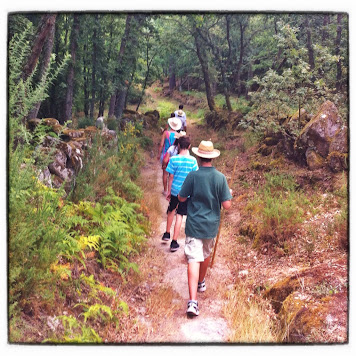.JPG) Well, here we are. I did get to a year of tips! I know it's such a cliche, time flies, but it's true. I'm amazed a whole year has gone by so extremely fast, but I'm even more surprised by the fact that I have been able to keep up with my weekly tips. It's been an incredible experience in many ways, much more fulfilling than I expected, and thus, for my final blog post of the year, I'm encouraging you to also write your own blogs as a mean to achieve happiness. From this experience, and the things I have read, I do think this makes a lot of sense.
Well, here we are. I did get to a year of tips! I know it's such a cliche, time flies, but it's true. I'm amazed a whole year has gone by so extremely fast, but I'm even more surprised by the fact that I have been able to keep up with my weekly tips. It's been an incredible experience in many ways, much more fulfilling than I expected, and thus, for my final blog post of the year, I'm encouraging you to also write your own blogs as a mean to achieve happiness. From this experience, and the things I have read, I do think this makes a lot of sense.
As I have already said in previous tips, a blog is a way to leave something behind. You can make a private blog at first, which can be like a journal, but later, with time, you may see that other people can benefit from it and it's all ready to go.
It can also be a part of a healthy challenge, which is what it was for me with the weekly deadline that I imposed on myself. I have to say, sometimes this deadline was hard. I remember one week when I just felt a bit stressed with everything and decided to not post something. As I was talking about it, my 15 year old son said in a shocked tone: "What? You HAVE to write the tip!" That really was enough motivation for me! And the thing is, you don't know how absolutely excited I am today for so many reasons (of course, number one being that I have been able to stay healthy the whole year), but having being able to meet my own imposed challenge is amazingly rewarding.
It is definitely a way to connect and learn from others. I have heard from friends far away (as far a Indonesia!) and friends very close by, who I feel are much more connected to me now because of the blog. I have enjoyed their comments, their suggestions and I have also learned immensely from them. And, mostly, I have felt their love. This is kind of strange, but some Mondays I would feel a curious wave of love inside me and I always thought that it just meant that someone was reading my blog. It doesn't even matter if it's true, as I derived a great benefit from it. But, what it is definitely a fact is that social connections are the number one mark for longevity (people without them live much less), and I have discovered that a blog is another great way to increase them.
But, I think the number one reason why I feel that everyone should write a blog is because you matter. Your story can help me, just like my story has helped you. We ALL have something valuable to give. I know many of you, so I know this is an indisputable fact. If you are creating your business, don't you think that there are many people who can learn from your struggle? If you are a teacher, don't you learn from a other teachers? Then, what you do in your class can definitely help me as well. You know, I never thought people would be interested in reading about mushrooms, for example, but I got many great comments to that post and I realized maybe it was just a good reminder for my friends to add something healthy easily to their menus.
I also think it has been therapeutic for me, and although I really cannot explain why, I think it can help anyone else as well. Some of the people who sometimes read this blog have great blogs already (Forthcoming and La Mia Famiglia are just two examples), but I know many of you still feel a bit scared of technology. I have to say that Blogger is a rather easy platform to use (although the comment section is a bit unstable). Here's a tutorial. I know it can be daunting, but it's just a matter of doing it (like most things in life). It really can be a fun project and it is a way to be creative, which is also so important for health and happiness.
Well, I hope you consider the idea. There are other ways to share, like social media platforms, or even journals that you can pass on. Let me know if you have more ideas.
And I also wanted to finish this year with a shout out to my husband, Shawn, as tomorrow is our 20th wedding anniversary. I feel extremely thankful that I have such a great partner in crime and that I am here to celebrate it!
I don't think I'm going to write any more tips for now, but I definitely have something planned for this blog for 2013. I'll explain next Sunday!
Please, let me know if you already have blogs of your own. I want to read them!
As always, thank you for having made this an incredible year.



.JPG)

















